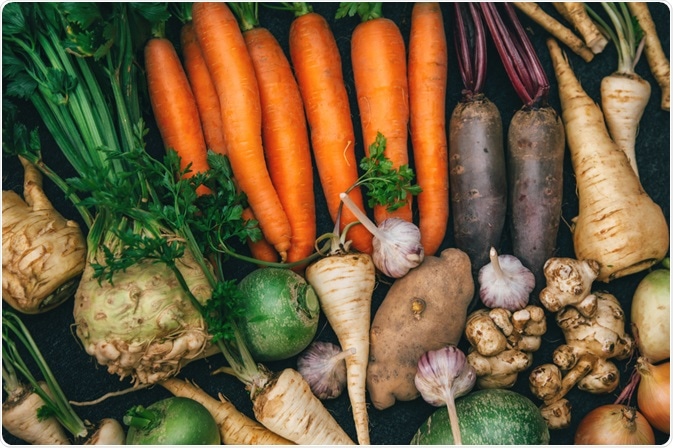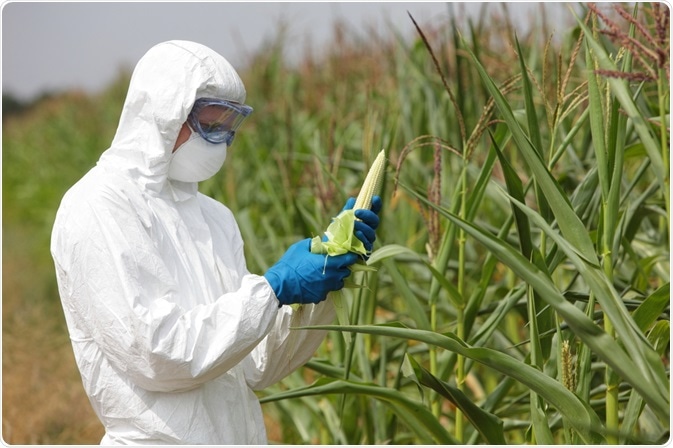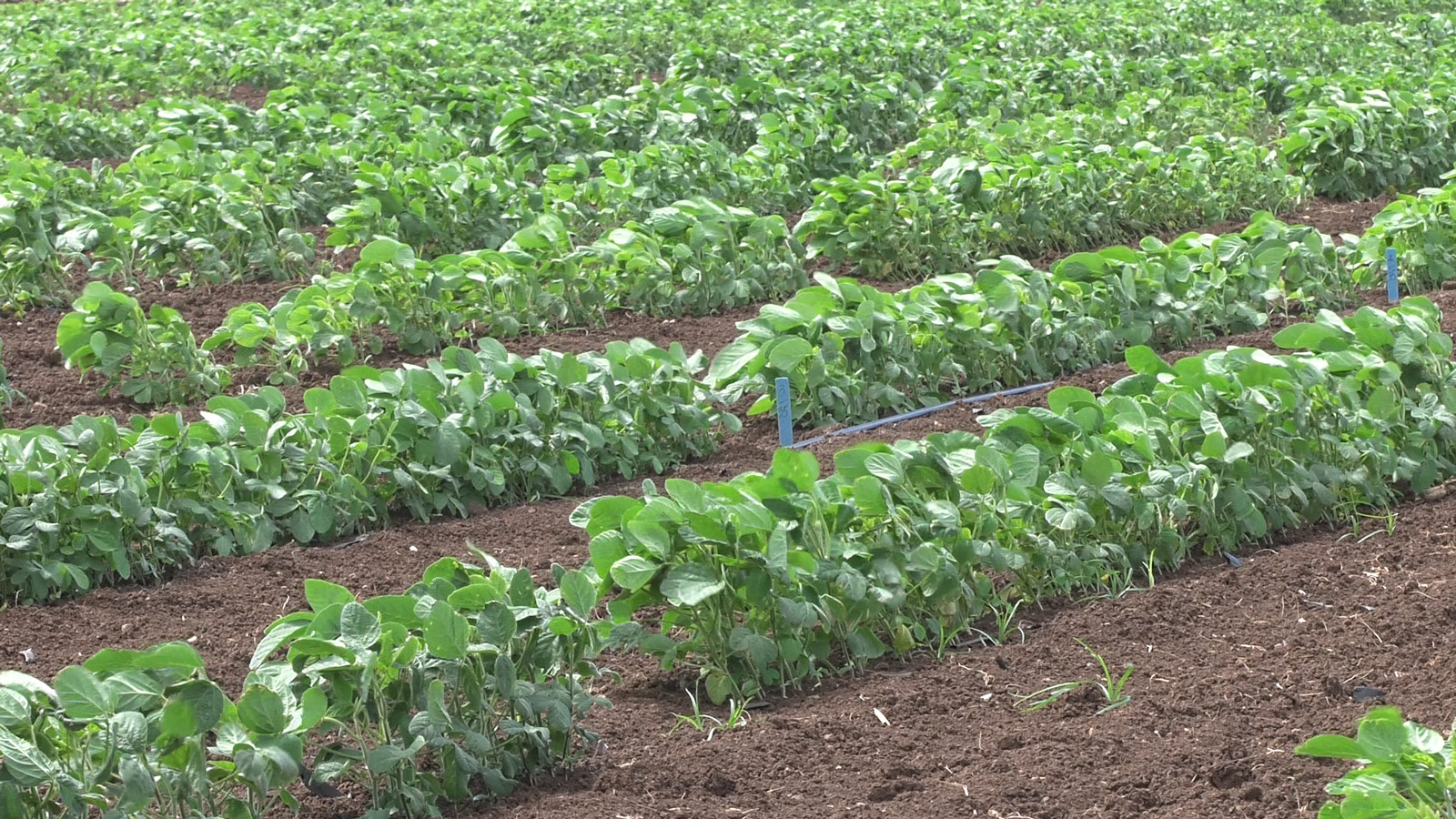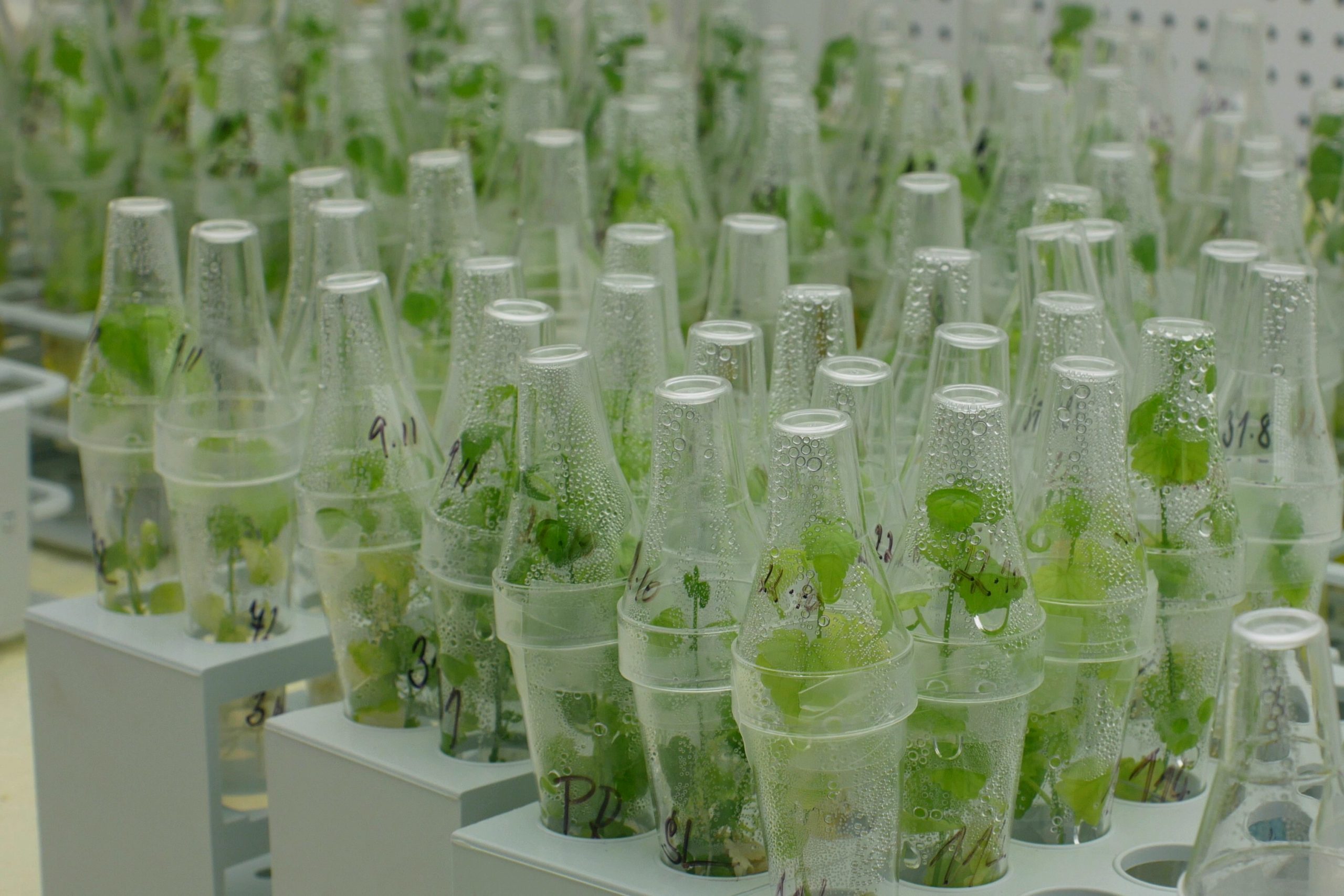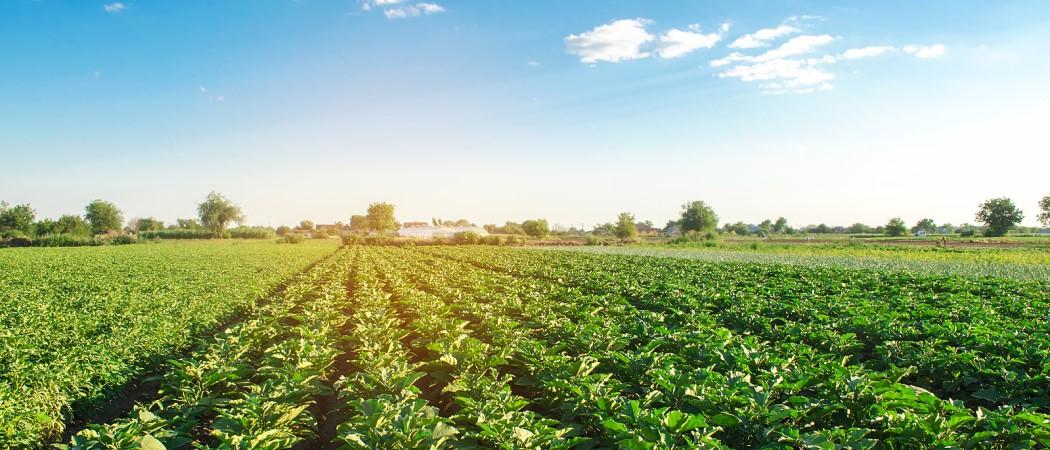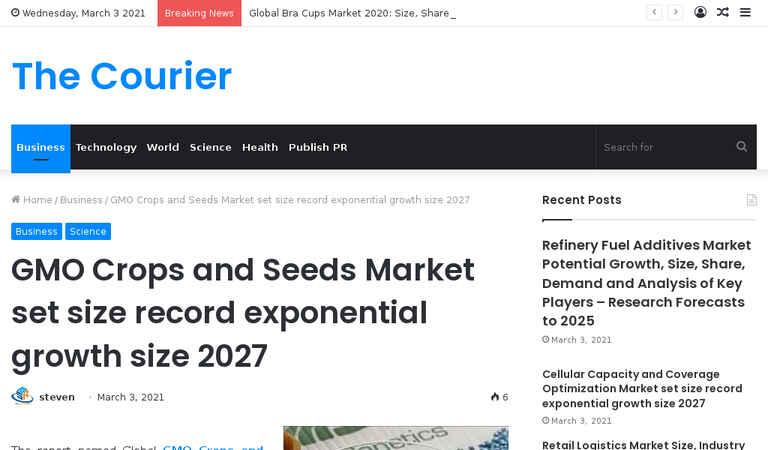 John LaRose Jr.
John LaRose Jr.
Topics: Agriculture Global, Sustainability, GMO's, CRISPR/Gene Editing, Genes /Genetics, World Hunger, Climate Change,
Engineering crops of the future: CRISPR approaches to develop climate-resilient and disease-resistant plants
To meet increasing global food demand, breeders and scientists aim to improve the yield and quality of major food crops. Plant diseases threaten food security and are expected to increase because of climate change. CRISPR genome-editing technology opens new opportunities to engineer disease resistance traits. With precise genome engineering and transgene-free applications, CRISPR is expected to resolve the major challenges to crop improvement. Here, we discuss the latest developments in CRISPR technologies for engineering resistance to viruses, bacteria, fungi, and pests. We conclude by highlighting current concerns and gaps in technology, as well as outstanding questions for future research.
-
(0)
-
Bookmark
- Comments (0)
 John LaRose Jr.
John LaRose Jr.
Topics: Wheat, Corn/Maize, Rice, Precision AG , Vegetables, Agriculture Global, GMO's, Research, CRISPR/Gene Editing, Genes /Genetics, World Hunger, World Population, Weather,
Boosting Plant Health Using Gene Editing
With a rapidly growing world population, food science has turned to molecular techniques to address the environmental challenges of food security.
-
(1)
-
Bookmark
- Comments (0)
 John LaRose Jr.
John LaRose Jr.
Topics: Precision AG , Agriculture Global, GMO's, Genes /Genetics, Ag Innovation, World Hunger, World Population,
Researchers discover new approach to reform plant breeding and genetics
The research was conducted at the Department of Food Science at the University of Copenhagen (UCPH FOOD) with professor emeritus Lars Munck as coordinator and builds on earlier work since 1963 at Svaloef Plant Breeding Institute and the Carlsberg Laboratory.
-
(0)
-
Bookmark
- Comments (0)
 John LaRose Jr.
John LaRose Jr.
Topics: Wheat, Agriculture Global, Food/Nutrition, GMO's, Research, Food Security/Shortage,
JIC-CIMMYT collaboration aims to find solutions for the world's wheat farmers and consumers
The John Innes Centre (JIC, UK) and the International Maize and Wheat Improvement Center (CIMMYT) -- two world class wheat research institutes -- have announced a strategic collaboration for joint research, knowledge sharing, and communications to further the global effort to develop the future of wheat.
-
(0)
-
Bookmark
- Comments (0)
 John LaRose Jr.
John LaRose Jr.
Topics: GMO's, Research, CRISPR/Gene Editing, Genes /Genetics, World Hunger, World Population, Education,
Insight into Genetically Modified Food
As the world population is predicted to near 10 billion by 2050, the demand for food may rise by 100 to 110%, which requires considerable technological progress to match such growing needs.
-
(1)
-
Bookmark
- Comments (0)
 Nancy Kavazanjian
Nancy Kavazanjian
Topics: Corn/Maize, Soybeans, GMO's, Ag Asia / Pacific,
China moves toward commercialization of GMO corn and soy - Alliance for Science
Chinese officials this week announced that genetically modified (GM) corn and soybean species have passed biosafety evaluations, moving the world’s most populous country closer to the commercialization of those two GM crops. According to reports in Chinese state-run media, two GM corn varieties and a soybean variety were among a total of 192 GM traits […]
-
(0)
-
Bookmark
- Comments (0)
 John LaRose Jr.
John LaRose Jr.
Topics: Vegetables, GMO's, Research, Genes /Genetics, World Hunger, World Population, Tomato, Education,
For tomato genes, one plus one doesn’t always make two - Cold Spring Harbor Laboratory
Both people and tomatoes come in different shapes and sizes. That is because every individual has a unique set of genetic variations—mutations—that affect how genes act and function. Added together, millions of small genetic variations make it hard to predict how a particular mutation will impact any individual. Cold Spring Harbor Laboratory (CSHL) Professor and...
-
(0)
-
Bookmark
- Comments (1)
 John LaRose Jr.
John LaRose Jr.
Topics: Precision AG , Agriculture Global, Economics, GMO's, Crop Diseases, Genes /Genetics, World Population,
8 ways plant tissue culture generates profit | Lab Assocciates
If you are in agri-business, chances that you know about tissue culture. Here are 8 ways your business can profit from plant tissue culture
-
(0)
-
Bookmark
- Comments (0)
 John LaRose Jr.
John LaRose Jr.
Topics: Agriculture Global, Economics, Sustainability, GMO's, Research, Ag Europe, Genes /Genetics, World Hunger, Weather,
Ethics report brings EU closer to decision on gene editing in agriculture
Using genome editing technologies in plants could help the EU ensure food security and reduce the impact of current agriculture practice on the climate, according to new report by the European Group on Ethics in science and new technologies (EGE). Allowing gene editing for precision breeding would help the EU achieve goals stated in its Farm to Fork strategy, of reducing use of fertilisers by 30 per cent and turning 25% of agricultural land over to organic farming by 2030. “There is a need to ensure food security, provide renewable resources for fuel, feed and fibre, safeguard the retention of biodiversity and protect the environment,” the report says. “Current forms of agriculture contribute significantly to the anthropogenic climate crisis.” The ethicists also call for broader and more inclusive societal debate on genome editing, for better monitoring of regulatory and scientific developments in the field, and moves to establish a system of global governance of gene editing technologies. EGE looked at the impact of gene editing in humans, animals and plants, concluding that in agriculture, the EU should speed up its adoption for plant breeding, to keep up with international competition and support food production. Gene editing of plants is comparable to current breeding techniques that use radiation or chemicals to genetically manipulate seeds, or to what can be achieved by the natural, but laborious process of crossing different cultivars. According to the Euroseeds association, the regulation of genome editing that is comparable to conventional methods should be proportional to the risk - and light in touch. Petra Jorasch, manager of plant breeding innovation advocacy at Euroseeds, said without improvements in plant breeding, Farm to Fork will reduce agricultural productivity. “If you take [pesticides and fertilisers] from farmers, you need some kind of innovation to compensate,” she said. Catching up with the rest of the world Precision breeding of plants through gene editing cannot b...
-
(0)
-
Bookmark
- Comments (0)
03/03/2021 SOURCE: www.mccourier.com
The report named Global GMO Crops and Seeds Market 2020 by Company, Regions, Type, and Application,
GMO Crops and Seeds Market set size record exponential growth size 2027 - The Courier
-
(0)
-
Bookmark
- Comments. (0)



